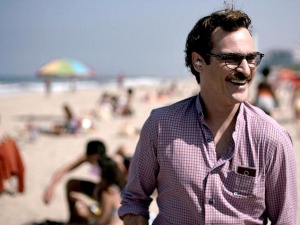It is harder to avoid spoilers than it ever has been before. With the increase in formats for potential conversations available, it is almost an achievement to not have something ruined for you. With this new conversational landscape, it was inevitable that we would also see an increase in people questioning how much can be said without spoiling something and at what point is it acceptable to spoil something.
I have heard people say two weeks after the film is released, but this is laughably harsh. For starters this is to assume that all film lovers have enough disposable cash to not only go to the cinema every week, but several times a week so as to ensure that they see each and every film released to avoid spoilers. It also assumes that all film lovers have in excess of six hours every week to dedicate to watching exclusively new releases. Film is my primary hobby and, beyond work, I have very few responsibilities or obligations, yet I still struggle to see that many flicks in cinemas every week.
 This timeframe also completely ignores the fact that these new conversations are global. No longer are you merely crossing your fingers that your mate doesn’t ruin the twist to FILM X [redacted by Dan in a post-read, it’s for the best, readers!] down the pub, you’re now praying that those Americans that saw Her on limited release on 18th December do not ruin the ending on Twitter or Filmspotting before we can see it tomorrow. For as long as release dates are not universal across the planet, the time after which it is okay to discuss spoilers cannot be this short.
This timeframe also completely ignores the fact that these new conversations are global. No longer are you merely crossing your fingers that your mate doesn’t ruin the twist to FILM X [redacted by Dan in a post-read, it’s for the best, readers!] down the pub, you’re now praying that those Americans that saw Her on limited release on 18th December do not ruin the ending on Twitter or Filmspotting before we can see it tomorrow. For as long as release dates are not universal across the planet, the time after which it is okay to discuss spoilers cannot be this short.
It is the idea of global release dates that also means a year is not enough of a gap. Take, for example, Thomas Vinterberg’s The Hunt. It was released in The Netherlands on 25th October 2012 and made my top five of 2012 after being released 30th October in the UK. However, it was not released in Uruguay until 19th December 2013 and so, while I’m not sure about the number of Dutch speaking Uruguayans, I’d assume a fair few speak English. Instantly, film potentially spoilt, and this is without taking films seen at festivals into consideration or, even more likely, delayed home video releases for smaller independent films.
So how about ten years? Surely, at that point everyone who wanted to see the film will have seen it, right? I remember being a fan of film when I was a young child and sneaking downstairs every morning to watch Disney’s Robin Hood before school, but I would assume that most people are similar to me in properly immersing themselves in cinema during their early/mid teens. While I grew up in a simpler time, in this instance we would not be expecting these poor fourteen year olds to spend all of their pocket money and more to see all new releases to avoid them being spoilt after a fortnight, but would instead expect them to neglect their studies and forgo getting any exercise with their friends so as to absorb every Hitchcock, Chaplin, Spielberg and Kubrick film before ever reading a piece of film criticism for fear of them being ruined.
Ultimately, my point is that a good writer should never need to spoil a film. They should instead think of that fourteen year old who is listening to you for advice, who, for some reason, thinks that your opinion is worthy of helping to shape their film appreciation. Having thought of that fourteen year old, think of the first time that you watched Citizen Kane (released forty-three years before I was born) or The Shining (I would have had to watch it at six to avoid it being potentially spoiled), and maybe think twice before nonchalantly assuming that everyone reading/watching/listening to you express your opinion has had the same amount of time as you to see all of these films. We all have films that we ‘should have watched’, I would like to suggest that I do my utmost not to ruin yours if you promise to do the same for mine.
DAN


